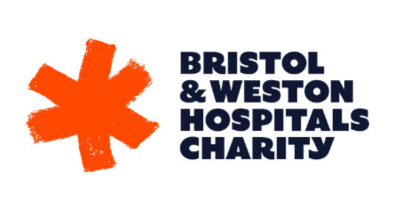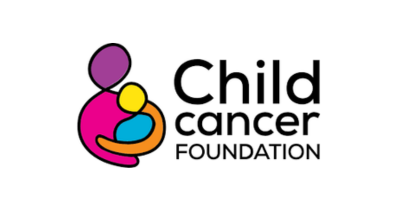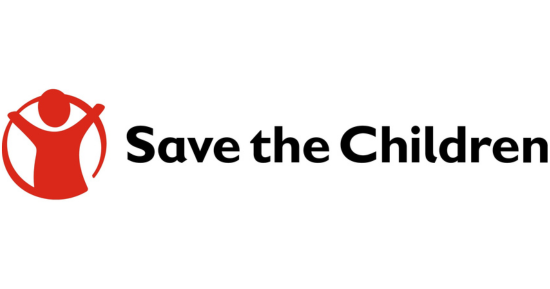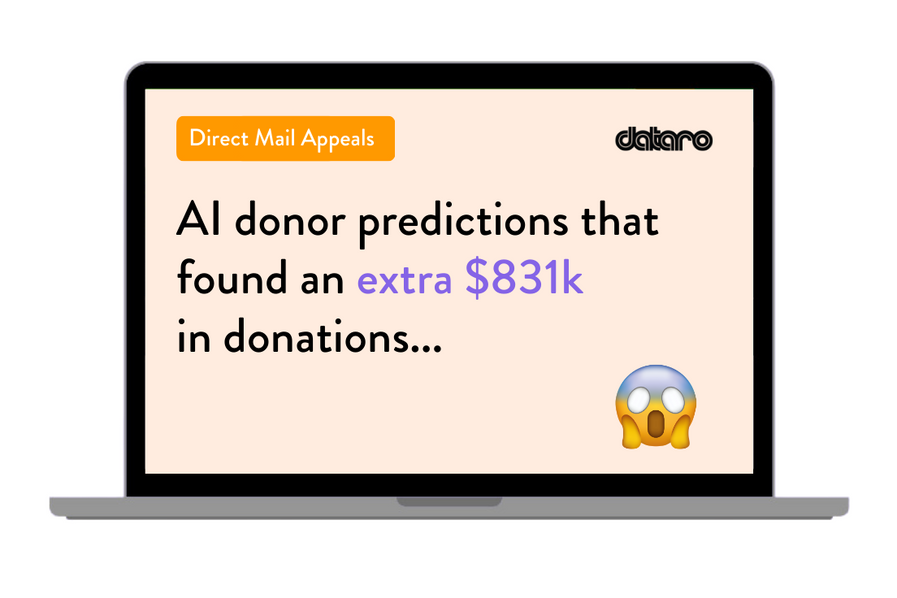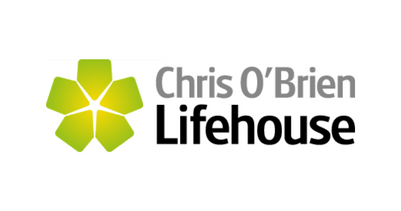
Chris O’Brien Lifehouse lifts appeal returns to help people living with cancer
Chris O’Brien Lifehouse is a world-class integrated cancer treatment centre and hospital. A critical part of funding their work is the organization’s appeals program. In 2020 the charity was looking for a way to increase net revenue by improving their campaign targeting.
As part of their first campaign with Dataro, Chris O’Brien Lifehouse ran a real-world experiment to test which targeting method would generate more gifts – Dataro’s AI-powered donor scores or their traditional segmentation approach using RFM (Recency, Frequency, Monetary).
The results showed that the charity was missing out on gifts using RFM in their campaign targeting.
In their Christmas 2020 appeal, the charity generated an additional +$13k in net revenue by identifying an additional group of donors who were likely to give but had been missed in the charity’s RFM segmentation.
Key results
- >$13k in additional net revenue with Dataro
- 118 extra gifts with Dataro
- 1.5% increase in response rate with Dataro
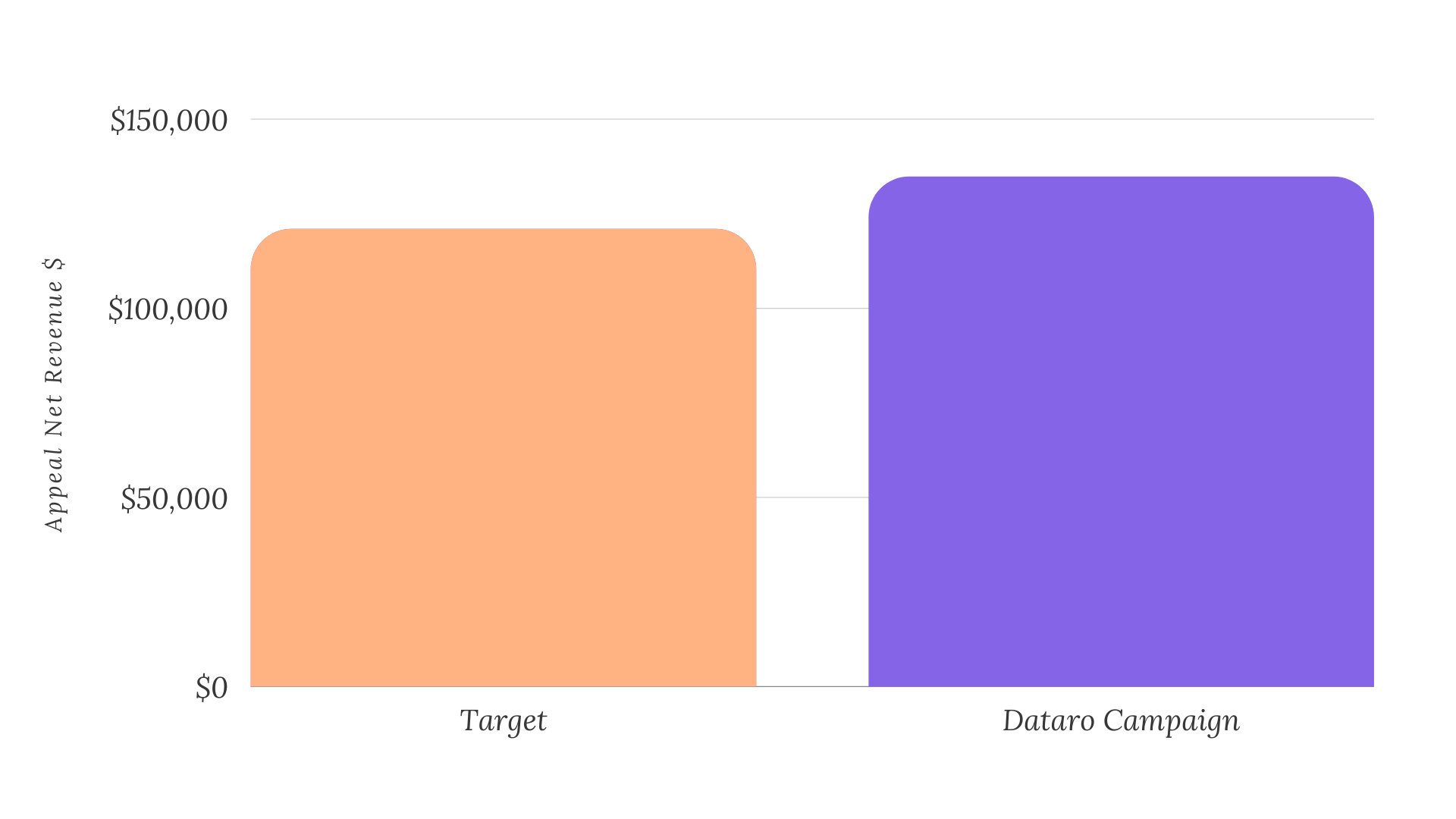
What we tested
Dataro has an incredible track record when it comes to improving appeal performance by identifying those donors most likely to give. In this case, Dataro integrated with Chris O’Brien Lifehouse’s CRM – Salesforce NPSP. Using machine learning, Dataro’s Direct Mail Appeal software model generated propensity scores for all of the charity’s active cash donors, providing a prediction of how likely each supporter would be to donate to an appeal, if solicited. The scores were seamlessly integrated into the charity’s CRM against the donor record as both a percentage and a rank.
Because Chris O’Brien Lifehouse wanted to test which appeal targeting method would generate the best returns – RFM segmentation or Dataro’s AI-powered donor predictions – an experiment was established.
In setting the experiment we grouped donors into three cohorts:
– donors selected by both the charity and Dataro
– donors selected by the charity via RFM (which Dataro identified as highly unlikely to give)
– donors selected by the Dataro (who had been missed in RFM segmentation)
By sending the campaign to all donors selected using either method, we were able to compare the results from the Dataro version of the campaign versus the charity version.
Analysing the Results
The result of this campaign confirmed that the charity was missing out on gifts using RFM for their appeal targeting. Dataro’s campaign was sent to more donors than the charity’s version but raised an additional +$13k in net revenue and achieved a 1.5% lift in response rates.
Specifically Dataro’s campaign identified an additional +3,000 donors to include in the appeal and generated +$15k in revenue from 118 extra gifts with an ROI of 0.95. The extra donors that Dataro recommended removing from the campaign (selected by the charity using RFM) had a lower response rate and lower average gift (less $15).
The results have changed how the charity does their appeals targeting. Continuing to use Dataro’s predictive donor ranks and scores, Chris O’Brien Lifehouse mailed fewer donors for their Tax campaign in 2022 and achieved their targets for the campaign.
In addition, the charity’s team are saving time and resources using Dataro to prepare their data selections.
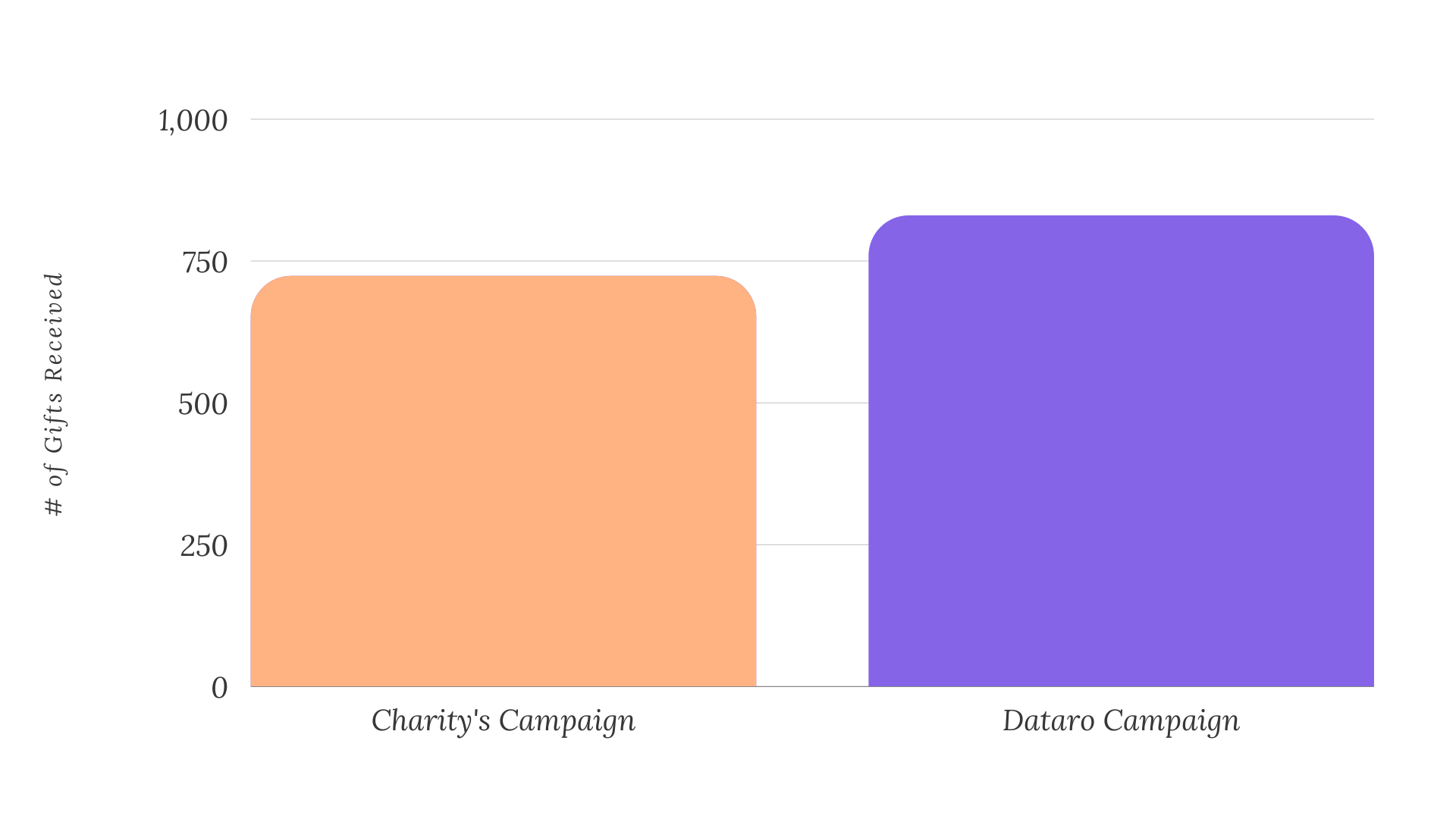
Takeaways
If you are using a segmentation approach for your direct mail appeals, you are missing out on gifts from donors in your database and wasting costs targeting donors who are highly unlikely to give.
Charities and nonprofits of all sizes are using Dataro’s machine learning to identify which existing donors in their database are most likely to give to their direct mail appeals. By targeting only those most likely to give, nonprofits can:
- Find more gifts from their existing donors
- Increase campaign response rates
- Raise more money
With prediction-based targeting Dataro will help you raise more from your existing donors, with less effort.
What they said
“We found using Dataro yielded better results for our campaigns and it was also easier for our data team too. We’re looking forward to using the propensities in our regular giving and mid-value programs.”

Caitlin Bull
Annual Giving and Campaigns Manager
More Case Studies
Using AI to Raise More Funds that Improve the Health and Happiness of Bristol & Weston Patients
Bristol & Weston Hospital Charity is the NHS charity committed to helping their group of hospitals go the extra mile for patients and their families. Despite being a relatively small nonprofit, they are at the forefront of embracing cutting-edge technologies like AI in their fundraising efforts to help
Read moreChild Cancer Foundation Leverages AI Donor Insights to Reconnect with Lapsed Donors
The Child Cancer Foundation (CCF) has long been a lifeline for Kiwi children and families affected by cancer. Over the years, the organization has relied on its generous donors to fund its work supporting families with children on their cancer journey. In 2021, staff changes left CCF with
Read moreHow Save The Children used AI to engage more mid-value donors to support children in need
Save the Children is the world’s leading aid and development agency dedicated to protecting children and helping them reach their full potential. In 2022, Save The Children Netherlands partnered with Dataro to see if they could convert more of their mass-market donors (single giving, recurring giving, multi-donors) to
Read more$831k in Extra Funding Secured in One Year with AI Donor Predictions
A leading international nonprofit dedicated to improving the lives of people with disabilities in developing countries partnered with Dataro seeking better direct mail appeal returns. This charity relies on the success of its direct mail appeal program to fund its important work and implements approximately 12 campaigns per
Read more
